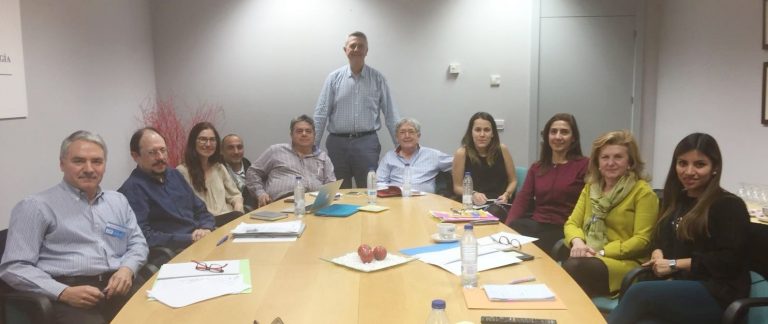NOVELREN-CM is the acronym for a research network funded by the Madrid Community’s grant program for RD activities, titled: “Chronic Kidney Disease: New Strategies for Prevention, Diagnosis and Treatment”, reference S2017/BMD-3751. The consortium is formed by 4 research groups belonging to CSIC (FIBROREN), University of Alcalá (QUIMIREN), Autonomous University of Madrid (INMUREN), Biomedical Research Foundation Prince of Asturias Hospital (CLINIREN), San Pablo CEU University (METAREN) and laboratory 182 of the Madrid Science Park (or Genomics Platform of the FPCM).
Chronic kidney disease (CKD) constitutes a socioeconomic problem of the first magnitude in the European Union, in Spain, and in the Community of Madrid. The consortium proposes to analyze the problem with a new perspective, leveraging individual experience with a multidisciplinary approach. This proposal integrates experience and knowledge from groups with a trajectory in clinical and basic research, massive analysis techniques (genomics and metabolics), synthesis chemistry, and the business world.

To analyze new mechanisms of CKD progression to prevent or even reverse the process, and limit the risk of patients’ evolution towards renal failure, laying the foundations for personalized therapy through:
- Analysis of the role of new mediators of intracellular signaling pathways in the progression of CKD in different experimental models of kidney damage, with special reference to Gremlin, connective tissue growth factor (CTGF) and calpains.
- Analysis of the role of interactions between extracellular matrix overproduction and resident kidney cells in the progression of CKD, with special reference to the study of the protein linked to integrin activation.
- Investigate the role of renal lipid metabolism in fibrogenesis and perpetuation of kidney damage.
- Define new key microRNAs in the generation and evolution of CKD through the use of high-throughput platforms.
- Validation of potential biomarkers obtained from the developed studies as predictors of CKD in a large cohort of patients included in the RedinRen bank.
More information on the Consortium website.












































